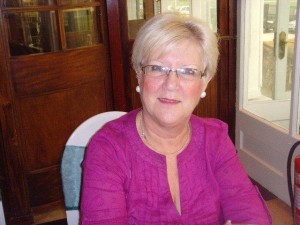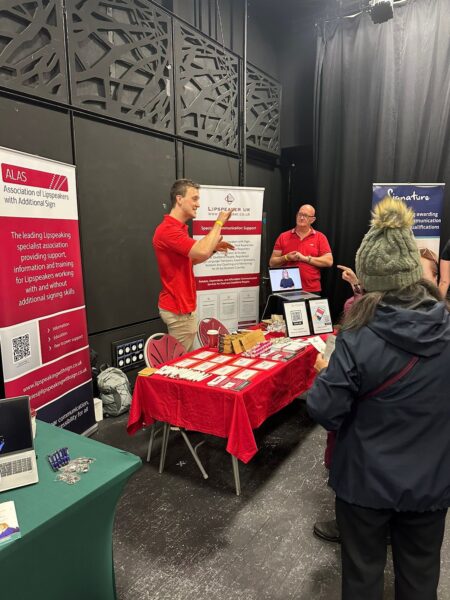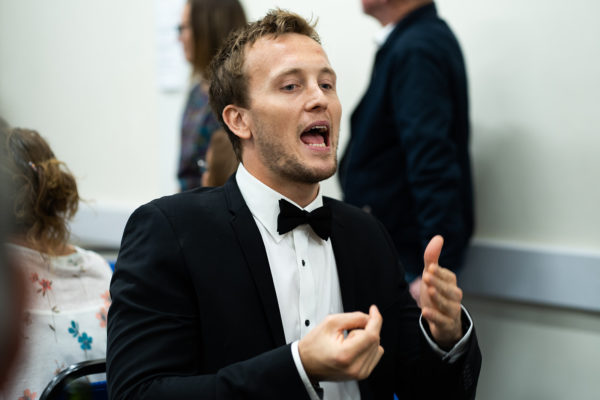Why silence is golden
Jeanette Wright lost her hearing after an ear infection; now she says she much prefers being deaf

If someone could restore my hearing tomorrow, I’d say no. I prefer being deaf. I have a language and community of my own, I always get a good night’s sleep and I always win an argument by saying my piece then looking away. Why would I suddenly want kids screaming and traffic blaring in my head 24 hours a day?
But it wasn’t always this way. I’m 53, but I became deaf 20 years ago. I was on holiday in Devon with my husband, my two-year-old daughter and six-week-old son, and I had a sinus infection. Apparently, driving up and down Devon’s hills caused pressure changes that pushed the infection into my inner ear and, in six months, I’d lost 90 per cent of my hearing.
That’s where I am now. With my hearing aid, if there’s no other noise, I can hear that you’re saying something to me, but I need to lip-read to hear what it is. Without the aid, I can hear only a faint ringing in my right ear and a dull whooshing sound in the left.
At first I fought it. I didn’t want to be deaf, so I pretended I wasn’t. I speak almost normally, so you’d hardly know that I’m deaf. But I struggled to understand the customers at the building society where I worked. They thought I was stupid; it was embarrassing and frustrating, and I had to leave. I cut myself off from everything apart from my family. If I was out with the children and saw someone I knew coming towards me, I’d cross the road and they’d think me rude. So I soon lost almost all my friends. I became angry with everyone and everything. My husband was supportive at first, but after a while he found it too much of a strain and, five years after I became deaf, we split up. I was left with two children, 5 and 7, and I hit bottom.
I was on antidepressants and counselling, and my only income was from the State. I hated it. I wanted to work, but I kept saying to myself: “Who’s going to want a deaf woman with two children? How can I work when I can’t hear?” I spent two more years locked away in self-pity.
And then came the moment when everything changed, and it was my children who did it. I was sitting in my lounge, looking at the garden, thinking that I wasn’t giving my kids the life they deserved. I couldn’t communicate with them as well as a mother should, and I couldn’t give them the holidays and toys that their friends had. I said to myself: “Right. No one’s going to do this for me. No one’s going to make me hear again. I’ve got to accept it. I’ve got to move on. I’ve got to earn my own money.”
The next day I enrolled at the local college to learn sign language. I decided on sign language because I couldn’t lip-read my children; kids tend to mumble and look away. Nothing changed to begin with. I was still isolated because nobody else I knew signed, but then, to practise for my first exam, I went to my local deaf club. Suddenly I realised that I wasn’t alone. I’ve never looked back.
I started to work part-time at the Royal Association for Deaf People, teaching life skills, sign language and deaf awareness. I’ve moved up and up and now I’m a training manager. I’ve trained staff at the Foreign and Commonwealth Office, the Cabinet Office and many more. I’ve more qualifications as a deaf person than I had as a hearing one, and done much more professionally. It was while teaching sign language that I met my second husband, Michael, who was on the course with a minor hearing problem. He asked me out after my first lesson and I said no. He asked me again and again and I refused because he was on my course and I didn’t think it was professional. So he waited until the year’s course finished and asked me out again. I said yes and we’ve been together ever since. We married in 2004, after living together for seven years.
Now I live with Michael, my son Daniel and Michael’s son James. My daughter Jemma lives near by, with her 20-month-old son Hayden James, who’s learning to sign already. He comes with me to the deaf club and signs with the elderly women, who love him to bits.
I feel that being deaf has made me a better person. I judge people for themselves. I’m also far more assertive than when I could hear. In day-to-day life, I love the peace and quiet I find in noisy places, such as Liverpool Street station, East London, although I prefer to drive because of the communication problems on public transport.
People still often think that I’m stupid and talk to Michael even if it’s me who has asked the question. On our honeymoon, a woman told Michael what a kind man he must be to marry a disabled person. And sometimes the dark makes the world a lonely place because it’s only in the light that I can communicate. But other than easy communication, the only things I really miss are music and the sound of my grandson laughing and giggling. So I put my hand on his chest and I feel it instead.
I’m told that a cochlear implant might help, but I don’t want one. The only real problem is people who aren’t deaf-aware who tend to ignore you out of fear or embarrassment. And, happily, it’s my job to train them to communicate with me.
Deaf awareness – diversity.
The overall aim of the programme is to help each delegate to understand a range of needs for people who suffer from deafness, ranging from mild to profound. Each session is designed to help people create an environment which promotes inclusion and a sense of welcoming and belonging. The sessions are made up of various delivery methods including talk and chalk, paired exercises, personal experience sharing.



